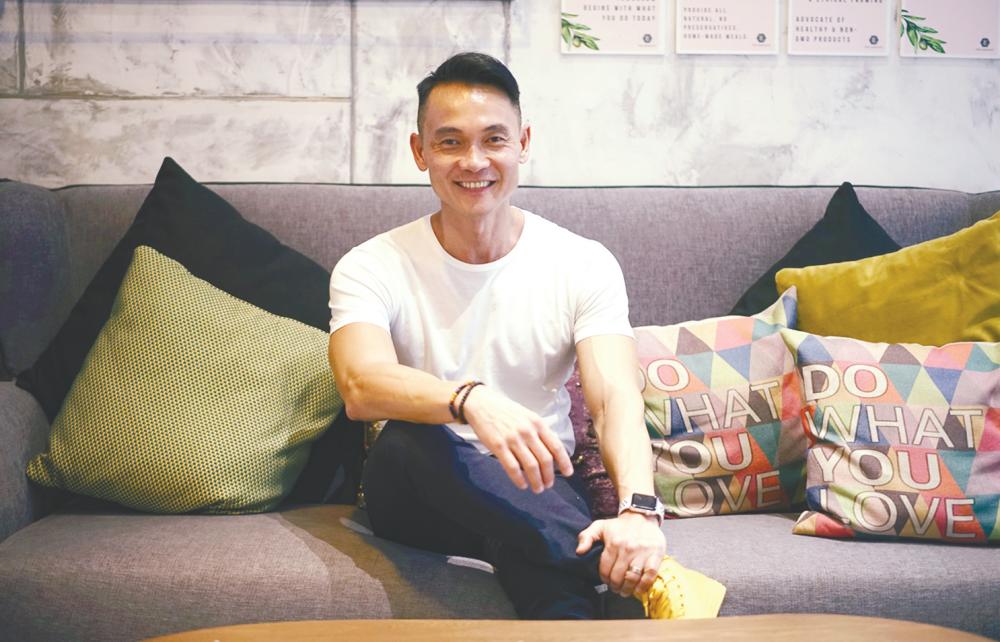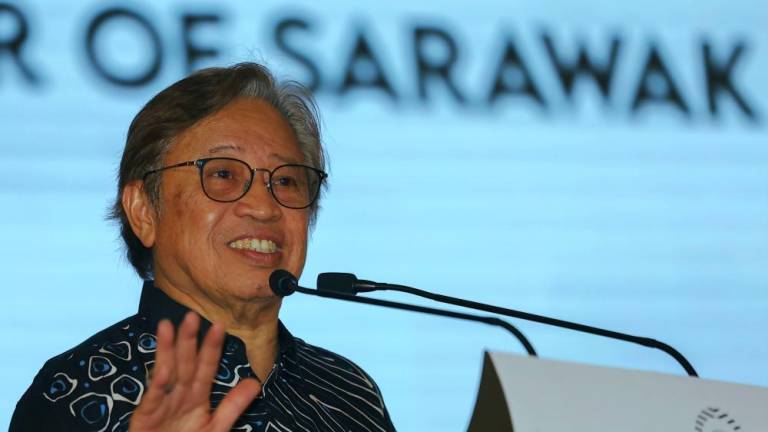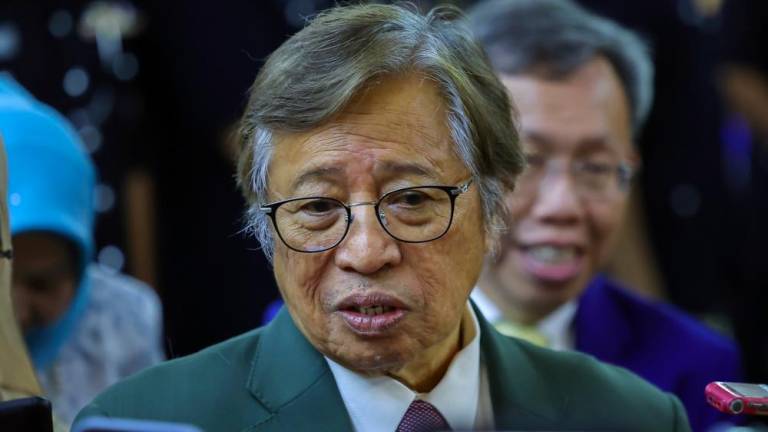WHEN people think of eating healthier, they usually imagine a restrictive diet consisting of bland, bare salads.
However, 49-year-old wellbeing and fitness coach Randall Wong has been demonstrating otherwise with his 10-day Get Fit with Randall programme, which aims to help Malaysians adopt mindful eating patterns tailored to today’s hectic lifestyles.
Wong first started the programme three years ago after a colleague asked for fitness advice in the four months leading up to her wedding.
His approach emphasises how and what you feed your body, while educating participants on nutrition, which often gets overlooked in favour of putting fitness first.
The 10-day programme has an affordable RM149 fee, and includes breakfast gatherings at Wong’s ‘nutrition club’ in Damansara Uptown, Petaling Jaya where he holds informal weekday chit-chat sessions with participants.
“It’s more like a platform to support people, to create a like-minded community,” Wong said in a recent interview.
The key element is daily communication with an expert “diet coach”, mostly done via social messaging app Whatsapp. Participants communicate in groups, with names that indicate their goals, like “Belly Bail Out 10-day Plan”.
Wong says that unlike other diet programmes, his requires no meal prep or requirement to follow a strict long-term menu plan, eliminating a key obstacle for busy folks.
“[It] means every day for lunch, for example, you’ll show me [a] picture of your lunch, and at dinner, you’ll show me [a] picture of your dinner.
“So by the end of the 10 days, you may have some idea of what you need to do,” he added.
Each day of the programme also sees Wong discussing talking points ranging from body fat, muscle mass, and proper hydration, providing coaching assistance with every step of the way.
Exercise is still encouraged, but Wong notes it is imperative to fix your diet first.
According to Wong, exercise makes up 20% of the whole pie chart of living healthy, and “the [remaining] 80% ... is still the way we eat.”
He added: “What I’m practising now is a very sustainable way to [improve] the way we eat here in Malaysia. You know Malaysia is food haven, [where] we have so many different choices of food.”
Unlike the ketogenic approach which demands many dietary adjustments and strict discipline, leading Wong to deem it a “fad or trend diet”, his get-fit programme may align better with the average Malaysian’s diet and lifestyle preference.
“It’s a permanent programme. Once you feel the results, it becomes very sustainable because it applies to when you have nasi kandar, order chap fan, economy rice, [or] when you go to banquet dinners.”
According to Wong, there’s really only one category of food one needs to avoid during the programme – dishes in which carbohydrates make up the majority of content.
“The only thing you cannot eat is our regular one-dish wonders,” explained Wong.
“One-dish wonder means ... [dishes consisting of] one plate of fried rice, one plate of fried noodles, or a plate of wonton mee.
“That’s how we get so obese – because we eat so [much] carbs.”
Poor nutrition is also a contributing factor to the worrying rates of diabetes and obesity in the country, and Wong cites measures like the government’s implementation of a sugar tax as a sign to improve diet habits.
“The question is why do we need the government to [make] these changes? Why not ourselves? We know ourselves better, we know how we eat.”
Changing habits may be hard, but it is not impossible. Wong says breaking down the coaching into digestible bits makes the programme easy to follow, and thus, a viable choice for long-term sustainability.
“And this plan works because I’m not asking you to cook, I’m not asking you to prep meals. That’s what people love about it.
“If you want to go out and eat, go out and eat. It’s just a matter of choice.
Other than ‘one dish wonders’, participants can still have their usual meals, whether eating out or cooking at home, as long as they manage their portions.
While the popular driving force when it comes to getting healthier is weight loss, the programme also caters to individuals with different goals, which Wong will help identify with an initial body assessment.
He carries a mobile Tanita scale and scanner that is able to measure hydration levels, basal metabolic rate (BMR), body mass index (BMI), body fat, and visceral fat. The personalised consultation also includes listing the participant’s fitness goals and ideal weight.
“It’s back to the fundamentals of caloric management, because all our calorie needs are different ... so I work on that number to break it down into your daily food [intake], and to make sure everything you eat per day, [does not] exceed your [required] calories.”
Around the fifth or sixth day, Wong does a mid-week check, and he said that participants will report having more energy, feeling less tired than before, and even having more regular bowel movements.
“This is what makes me happy,” he said. “[Experiencing] these results means you’re on track. I feel more relieved, and I expect [they will achieve] better results at the end of [the programme].
As Wong puts it: “Their whole wellbeing is just modified because they’ve been [making] small changes, that’s how they see results, and these results will give them the motivation to continue.”













